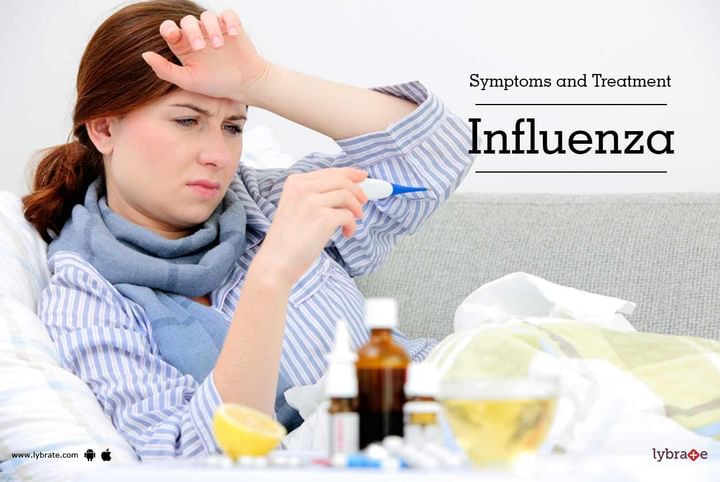Get the App
For Doctors
Login/Sign-up
Last Updated: Jan 10, 2023
BookMark
Report
Symptoms and Treatment: Influenza
Influenza or seasonal flu is basically a viral infection. It is different from common flu that accounts for many conditions that occur due to changing weather. These conditions include cold, stomach problems and fever. Influenza or flu comes with a variety of symptoms and is primarily caused by a virus due to lack of precautions taken as far as food and outings go, during the changing seasons.
Let us find out more about the symptoms and treatment:
- Symptoms: The main symptoms of this condition include fever, an aching body, dullness, fatigue, dry hacking coughs, a sore throat and even headaches. Appetite loss and drowsiness are also some symptoms of the condition.
- Causes: Influenza is usually caused by either of the two influenza viruses, such as virus A or Virus B. The strains of these viruses are known to change every year.
- Congestion: The main form of treatment revolves around treating the congestion that may have occurred in the nasal or the sinus tracts. The treatment for this is usually done with the help of nasal decongestants or sprays which can be used for a few days to get relief until the infection and congestion leaves the body. One must avoid the use of these decongestants for prolonged periods of time as they can make the condition reoccur again and again.
- Allergies: Histamine is the chemical that the body produces automatically when an allergy hits. This is what causes influenza and hay fever as well. One can get treated with the help of anti-histamine drugs that will be prescribed for the doctor in case an allergic reaction or hay fever is detected. This drug can cause severe drowsiness, so it is best to take it at night and wake up fresh in the morning.
- Blood Pressure and Other Complications: It is important to know what kind of medication you are allergic to, before you ingest anything or take a spray. If you are suffering from high blood pressure or any other cardiovascular complications, then you may want to steer clear of decongestants as these sprays can increase the blood pressure as well as the heart rate of the patient.
- Cough: In order to cure a cough, one can take a cough medicine that will also have anti-histamines and analgesics, which will help in clearing the pollutants, dirt and allergens that have caused the cough.
- Fever: In case you are experiencing fever and body ache, you can take aspirin or acetaminophen. However, this should be avoided by children.
With the treatment, one should take ample precautions while stepping out the home. Also, the patient should be careful about the dosage to avoid an overdose. If you wish to discuss about any specific problem, you can consult a doctor.



+1.svg)
